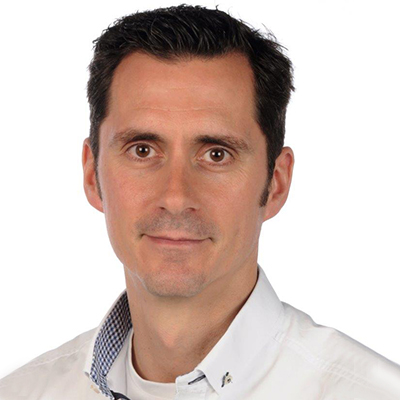“I want to find out how sperm locate the egg”

Prof. Strünker, what scientific topic are you working on right now?
I’m looking at the very beginning of life: sperm cells. To be more precise, I'm investigating how sperm move, how they spot the egg, and how they register and navigate along the chemical signposts released by the egg. Key for this navigation process, termed chemotaxis, are certain ion channels in the sperm's tail. We've already got a good understanding of the function of these channels from sperm of sea urchins, which have served as a model system to study sperm function for about 100 years. We are now transferring these findings to humans. In many aspects sea urchin sperm and eggs are similar to those of humans. However, sea urchins release their gametes into the seawater for external fertilization, which render the sperm's job to find the attractant-emitting egg pretty difficult. Therefore, the chemotactic signal pathways in sea urchin sperm operates at an extreme sensitivity. In humans, where fertilization happens internally, sperm seem to be less sensitive for the egg's attractant.
What characterizes you personally as a scientist?
I studied in Cologne, did my PhD at the Research Center Jülich, and after that I spent almost four years working in the pharmaceuticals industry. Looking back today, I would say that maybe I joined the pharmaceuticals industry too soon. It wasn't long before I was heading a laboratory by myself. It was exciting for half a year, and I thought it would continue that way. But, ultimately, it turned out to be less exciting than I thought. When my former PhD supervisor became Director of the Research Center Caesar – a Max Planck Institute in Bonn – and asked me to head up a working group, I accepted immediately. I was lucky, and I was successful there. Now I've had a professorship since May 2015 at the Centre for Reproductive Medicine and Andrology in Münster. There's no better place than here for our biophysical research on sperm.
What’s your great aim as a scientist?
I want to find out exactly how human sperms perceive their environment and actually locate the egg – and what can go wrong in this process. To achieve this, we need to successfully apply to humans the methods and models that we have already established with the aid of sea urchins' sperm.
What’s your favourite “toy” for research – and what can it do?
Stopped-flow fluometry, which actually comes from the field of chemistry. We use this technique to observe fast chemical reactions, which take place in just a few milliseconds. We have adapted the technology to human sperm and, in high time resolution, we can watch how sperm react to chemical cues.
Can you remember your happiest moment?
Very well, in fact. It was something that happened in 2009, and which changed everything. The question of which ion channels in human sperm are responsible for the reaction to the egg's attractant was proving to be a very tough nut to crack. For three years, we had considered every possible eventuality and had carried out countless experiments. The results were all negative and frustrating. We just weren't making any progress. We then used a new technology – and, from one day to the next, the solution was there. At that moment, it became clear that we had discovered a new field of research.
And what was your biggest frustration?
The years before this happened.
Which scientific phenomenon still regularly fascinates you today?
I can get excited about things incredibly quickly. Something that fascinates me, for example, are our senses of vision, smell, and taste. The way the signals are processed is just fascinating and in parts similar to signalling in sperm.
What big unsolved scientific question would you like to have an answer to?
Can I answer that later? Although … there is in fact one question that I'd like an answer to: When will my home team, 1. FC Köln, finally be playing at international level again?

